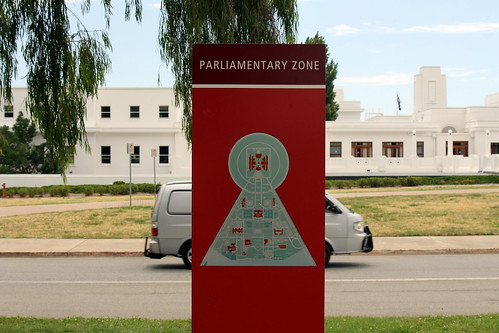“The continued usage of the Australian Constitution Act (UK) by the Australian Governments and the judiciary is a confidence trick of monstrous proportions played upon the Australian people with the intent of maintaining power. It remains an Act of the United Kingdom. After joining the League of Nations in 1919 Australia became a sovereign nation. It had no further legal power to use, alter or otherwise tamper with another nation’s legislation. Authority over the Australian Constitution Act lies not with the Australian government nor with the Australian people, it rests solely with the UK. Only they have the authority to repeal this legislation …”.Differing legal opinion cites the establishment of Australia as an independent sovereign nation over a wide range of dates. These include, but are not limited to:
1901
with the proclamation of the Commonwealth of Australia Act (Imp)
1919
with the signing of and unanimous vote by the Federal Parliament of the Commonwealth of Australia in acceptance of the Treaty of Versailles.
1926
by the declaration of the Inter-Imperial Relations Committee of the Imperial Conference.
1929
by the Balfour Declaration
1939
by the Federal Parliament of the Commonwealth of Australia enacting the Statute of Westminster Adoption Act 1942 (Cth) back dated to 1939.
1945
by the Commonwealth of Australia becoming a foundation member of the United Nations and subsequently enacting the Charter of the United Nations Act 1945.
1986
with the passing of the Australia Acts (both UK & Cth)
1917-1939-1986:
alternatively, the less controversial but flawed gradual evolution during the 20th century explanation.
Which ever date is chosen does not alter the consequences of the breach of Sovereignty, for Prof. O’Connell states:
“Whatever form the change in sovereignty may take it involves a disruption of the legal continuity… These rules form a body of doctrine known as the law of state succession…”However contrary to much of domestic Australian legal opinion, Australia became an independent sovereign nation following Mr. William Morris Hughes, Prime Minister and Commonwealth Attorney-General, together with Sir Joseph Cook, signing the multi-lateral Treaty of Peace at Versailles, France in June 1919. This included the Covenant of the League of Nations, along with many other important documents in International Law. Particular attention should be paid to clauses I, X, XVIII, and XX of the Covenant. go to ...The ‘Australian’ Constitution is United Kingdom law.
(International Law, P. D. O’Connell, Vol. 1, 2nd ed. 1970, p. 365-368)
In “An Act to Constitute the Commonwealth of Australia”, the 9th clause of which is usually referred to as the ‘Australian Constitution’ was, is, and remains conditional upon the first 8 covering clauses of that Act, a current Act of domestic law of the United Kingdom Parliament.
Under Section 128 of Clause 9, minor alterations to the Constitution may be made by the Australian people. However, the Australian people may not alter, in any way, Clauses 1 to 8 of the Imperial Act. Since the Australian people have only ever had the right to change sections 1 to 128 of clause 9 of that Act, it follows that covering clauses 1 to 8 remain law in Australia.
The Commonwealth of Australia Constitution Act passed through the UK Parliament in June 1900, to commence as law in Australia on the 1st of January 1901. Since the people of Australia have only ever had the right to change Sections 1 to 128 of Clause 9 of this Act, it follows that covering clauses 2, 6 and 8 remain law in Australia. (See Joosse v ASIC HCA 1998 159 ALR 260 or go to http://www.austlii.edu.au/…/other/hca/trans…/1998/M35/1.html )
This means that British colonial law still operates in Australia and that Australia is a self governing colony of the United Kingdom as stated in that Act (see clause 8). However, the High Court of Australia has recently ruled that the United Kingdom is a foreign power, and that the UK Parliament cannot have any effect on the Governments of Australia (Sue v Hill HCA 30 of 1999 or seehttp://www.austlii.edu.au/au/cases/cth/high_ct/1999/30.html).
Hence, if British colonial law continues to operate in Australia, then this constitutes a clear breach of international law, along with the duties and responsibilities of the Australian and the United Kingdom governments, as both were Foundation Members to the League of Nations, and the United Nations. The Covenant and the Charter of both bodies, respectively, bind these nations.
The Australian people do not have ultimate control over the ‘Australian’ Constitution. In mid-July 1995 the Lord Chancellor of the UK in answer to a Parliamentary question asked in the UK Parliament about the Australian Constitution, stated:
“The British Constitution Act 1900 was for self government. It was never intended to be and is not suitable to be the basis for independence. The right to repeal this Act remains the sole prerogative of the United Kingdom. There is no means by which under United Kingdom or international law this power can be transferred to a foreign country or Member State of the United Nations. Indeed, the United Nations Charter precludes any such action”.https://endoppressioninoz.wordpress.com/valid-government-d…/
Images @ Eminpee Fotography

No comments:
Post a Comment